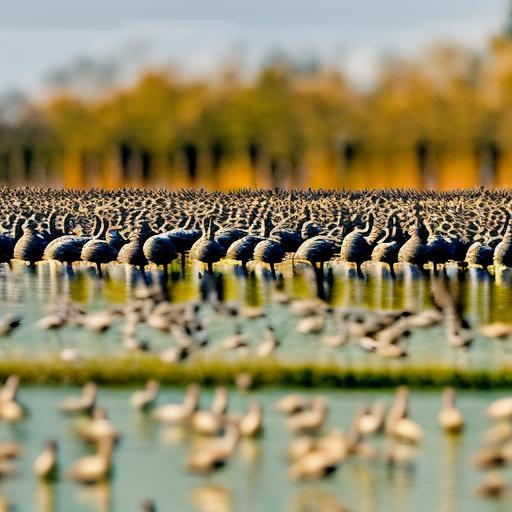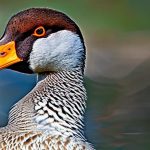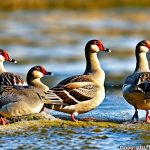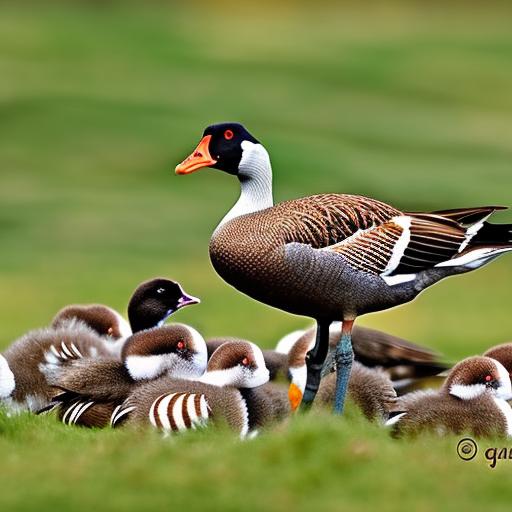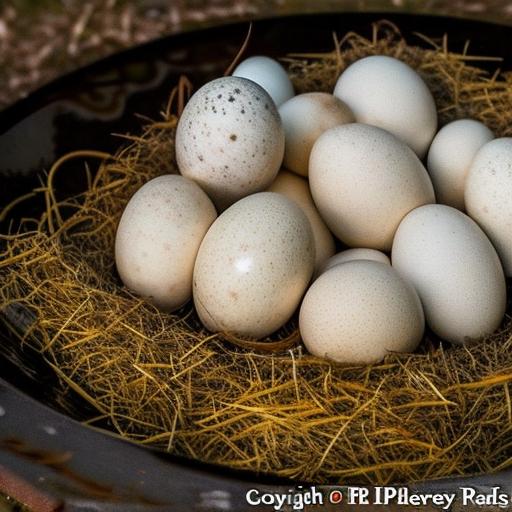Selecting quality breeding stock is crucial for successful goose farming. The genetic makeup of the breeding stock will determine the quality and productivity of the goslings. It is important to choose geese that are healthy, have good conformation, and exhibit desirable traits such as high egg production, good growth rates, and strong immune systems. By selecting quality breeding stock, farmers can ensure that their goslings will have a better chance of thriving and reaching their full potential.
When selecting breeding stock, it is important to consider the breed standards and select geese that meet these standards. This will help ensure that the offspring will also exhibit the desired traits and characteristics of the breed. Additionally, it is important to choose breeding stock from reputable breeders or sources to ensure that the geese are free from genetic defects and diseases. By investing in quality breeding stock, farmers can set a solid foundation for their goose farming operation and increase the likelihood of producing healthy and productive goslings.
Incubation and Hatching Process
The incubation and hatching process is a critical stage in goose farming. Proper management during this stage is essential for ensuring a high hatch rate and healthy goslings. The process begins with collecting fertile eggs from the breeding stock and placing them in an incubator set at the appropriate temperature and humidity levels. It is important to regularly monitor and adjust these conditions to ensure optimal development of the embryos.
After approximately 28-30 days of incubation, the eggs will begin to hatch. It is important to provide a clean and warm environment for the newly hatched goslings, as well as access to water and feed. Careful attention should be paid to any goslings that may be struggling to hatch, as they may require assistance. Proper handling and care during the incubation and hatching process will help ensure the health and vitality of the goslings, setting the stage for successful rearing and growth.
Brooding and Rearing Goslings
Once the goslings have hatched, they require proper brooding and rearing to ensure their health and well-being. Brooding involves providing a warm and draft-free environment for the goslings, as well as access to feed and water. It is important to monitor the temperature in the brooder and make adjustments as needed to ensure that the goslings are comfortable and thriving.
As the goslings grow, they will require more space and access to outdoor areas for exercise and foraging. It is important to provide a balanced diet that meets their nutritional needs for optimal growth and development. Additionally, regular health checks should be conducted to monitor for any signs of illness or disease. Proper brooding and rearing practices are essential for setting the stage for healthy and productive geese.
Feeding and Nutrition for Growing Geese
Feeding and nutrition play a crucial role in the growth and development of geese. A balanced diet that meets their nutritional needs is essential for ensuring optimal growth, egg production, and overall health. Geese require a diet that is high in protein, vitamins, and minerals to support their growth and development. This can be achieved through a combination of commercial feed, pasture grazing, and supplemental feeding.
It is important to provide access to clean water at all times, as well as a variety of feed options to ensure that the geese are receiving all the nutrients they need. Additionally, it is important to monitor their body condition and adjust their diet as needed to prevent obesity or malnutrition. By providing a balanced diet that meets their nutritional needs, farmers can ensure that their geese are healthy, productive, and thriving.
Health and Disease Management
Maintaining the health of geese is essential for a successful farming operation. Regular health checks should be conducted to monitor for any signs of illness or disease. It is important to provide a clean and sanitary environment for the geese, as well as access to clean water and feed. Additionally, vaccination programs should be implemented to protect against common diseases such as avian influenza and Newcastle disease.
In the event of illness or disease, it is important to seek veterinary care promptly to prevent the spread of infection and minimize the impact on the flock. Proper biosecurity measures should also be implemented to prevent the introduction of diseases onto the farm. By prioritizing health and disease management, farmers can ensure that their geese are healthy, productive, and thriving.
Breeding and Reproduction
Breeding and reproduction are essential components of goose farming. It is important to carefully manage breeding stock to ensure optimal fertility and egg production. This involves providing a balanced diet, proper housing, and regular health checks to maintain the reproductive health of the geese. Additionally, it is important to monitor mating behavior and egg production to identify any issues that may impact fertility.
Once eggs are laid, they should be collected promptly and stored in a cool, humid environment until they are ready for incubation. It is important to carefully manage the incubation process to ensure a high hatch rate and healthy goslings. By prioritizing breeding and reproduction, farmers can ensure a steady supply of goslings for rearing and production.
Marketing and Selling Geese
Marketing and selling geese is an important aspect of goose farming. It is important to identify target markets and develop a marketing strategy to promote the sale of geese. This may involve participating in local farmers’ markets, establishing relationships with restaurants or retailers, or selling directly to consumers through on-farm sales or online platforms.
It is important to highlight the quality and unique characteristics of the geese being sold, such as their breed, production methods, or flavor profile. Additionally, it is important to provide excellent customer service and support to build trust with buyers and encourage repeat business. By prioritizing marketing and sales efforts, farmers can maximize the profitability of their goose farming operation.
In conclusion, successful goose farming requires careful attention to every aspect of production, from selecting quality breeding stock to marketing and selling geese. By prioritizing proper management practices for incubation, brooding, feeding, health management, breeding, and marketing, farmers can ensure that their geese are healthy, productive, and thriving. With dedication and attention to detail, goose farming can be a rewarding endeavor with potential for success in both domestic and international markets.
Meet Walter, the feathered-friend fanatic of Florida! Nestled in the sunshine state, Walter struts through life with his feathered companions, clucking his way to happiness. With a coop that’s fancier than a five-star hotel, he’s the Don Juan of the chicken world. When he’s not teaching his hens to do the cha-cha, you’ll find him in a heated debate with his prized rooster, Sir Clucks-a-Lot. Walter’s poultry passion is no yolk; he’s the sunny-side-up guy you never knew you needed in your flock of friends!

